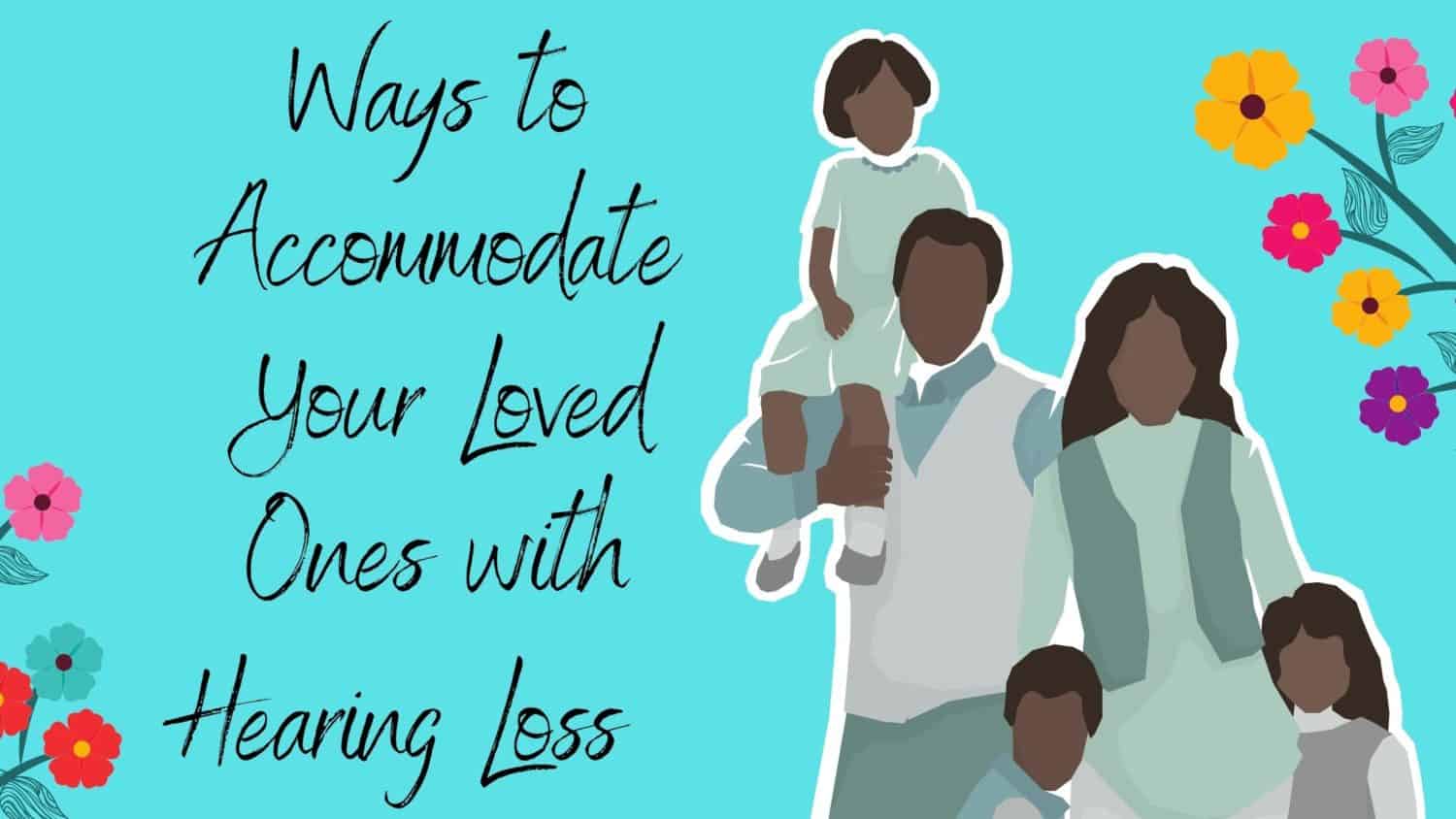- Can Swimming With Hearing Aids Be Safe? - May 7, 2025
- Why Hydration Matters for Hearing Health - April 9, 2025
- Ensuring Safe Travels with Hearing Aids - March 7, 2025
If you have a loved one with hearing loss, you know how challenging it can be to communicate. Sometimes all the conditions are right, and yet you struggle to get across a simple message or to convey a basic question. Although there are many reasons for the seemingly random nature of miscommunication among those with hearing loss, one of the simplest reasons is that each person’s experience is different. No universal rule can be applied to all people in all settings, and you need to put in some effort to understand what makes communication difficult for your loved one.
After pursuing this first principle of hearing loss accommodation—that each experience is unique—there are a few simple principles you can keep in mind to make communication easier. Let’s begin by exploring how to initiate a conversation about individual needs and proceed to consider what you can do to accommodate your loved one.
Learning about Hearing Loss
The first step you can take to accommodate your loved one with hearing loss is to have a frank conversation about the individual nature of the loss. Choose a peaceful time in a quiet location to have the conversation. An afternoon at home without background noise is a great time to initiate this talk. Begin by asking if your loved one has found it difficult to communicate or to hear what you’re saying. Ask in what contexts it is most difficult to hear. You might want to ask your loved one to recall the last time that it was hard to have a conversation.
Working as an amateur detective, you can try to isolate some of the difficult features. Was it the competing background noise that made it difficult? Was it the voice of the speaker? Perhaps there was something else about the conversation that made it hard. Once you have an idea about the nature of the hearing difficulty, ask your loved one what makes it easier to hear. You might be surprised by how much precision your loved one brings to the conversation when it comes to desired accommodations. Listen carefully and make a mental note of the specific things that make it difficult or easy to hear.
Principles of Accommodation
Once you know some of the specific things that will help your loved one, you can pursue some other general principles that make communication easier. One of the best things you can do is to reduce background noise whenever possible. Briefly muting the television when you talk can help immensely, and you might be surprised how seldom your loved one takes this simple step. Avoid talking from another room. Though it might feel unnatural at first, take a few moments to walk into the room where your loved one is located, and try to stand within eyeshot.
The combination of visual and audible information combine to form a meaningful mode of communication, and your loved one might be relying on visual cues in ways they do not even acknowledge. If you are trying to help your loved one in a social setting, take care not to talk down to them or to speak overly slowly. These gestures at accommodation can feel insulting sometimes. Instead, simply raise the volume of your voice a little bit and try to subtly enunciate your words.
If your loved one is struggling to hear what others have to say in this setting, don’t answer on their behalf. You can rephrase a question at a closer distance to make it possible for your loved one to join in the conversation on their own. Seating your loved one in the middle of a table at a restaurant helps quite a lot, and you can even request a quieter location if the conditions make that possible.
Treating Hearing Loss
Despite your attempts to accommodate your loved one, you might find that it only goes so far. The only durable solution for hearing loss is to get treatment from an expert hearing health professional. Encouraging your loved one to make an appointment for a hearing test might very well be the best accommodation you can offer! Hearing assistance can fill in the gaps in conversation in ways that your best efforts cannot, so don’t delay making the appointment.

